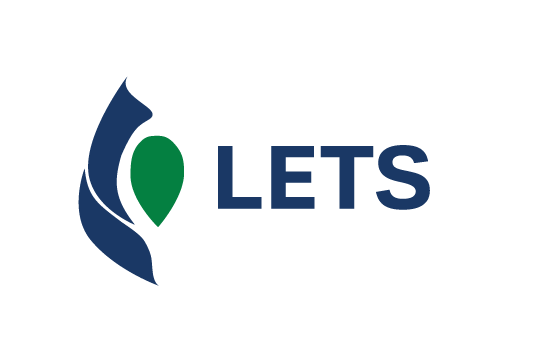Despite the foolishness and intolerances...
Once again in incoherent human history, innocents pay with their lives for the greed, greed and avarice of some self-styled leaders and even religious and pious. We have lived days in which news of pain, death, destruction, intolerance and evil leave us not only perplexed, but pessimistic, almost disbelieving that we can still, as humanity, find peaceful paths of coexistence and respect. War and desolation in Israel and the Gaza Strip. Children, women, the elderly and the young – no one seems to be able to escape the deadly fury of bombs, weapons and evil. War, too, in Ukraine, Yemen, Syria, countries in Africa and Azerbaijan. Pure nonsense!
These are some of the bloody conflicts we are witnessing, not to mention the deaths – many! – daily news in our country, moved by the confrontation of antagonistic forces that, in my view, no longer recognize the limits between good and evil.
My heart is embarrassed by each piece of news like this. I wish I could do something to alleviate so much pain and suffering! Unfortunately, I can't... but I can try to put on the "other side of the scale", some stories of people who dedicate themselves year after year, day after day, to the service of LIFE.
So, today I want to talk about the announcement of the Nobel Prize in Medicine 2023.
The almost four decades (!!) of research by biochemical biologist Katalin Karikó have finally been recognized. His resilient and patient work, always in search of his theories about messenger RNA, was fundamental in the development of vaccines against Sars-Cov-2, the Covid-19 virus that has recently mistreated us so much. Together with immunologist Drew Weissman, Karikó will share this year's awards.
Millions of lives saved! But the path was arduous. Katalin Karikó's ideas were systematically ignored and even despised in academia. Numerous requests for funding were denied by both federal agencies and private U.S. institutions. However, even discredited by many fellow scientists, this woman did not give up on the path that, she believed, would one day lead her to a special place where "saving lives" would be a reality.
In 1997, after 15 years working at universities in the United States and being diagnosed with cancer, she met with Weissman and seven years later, the pair discovered a method to deal with the body's immune response, using synthetic messenger RNA.
Synthetic?! Why, not the "proper", "natural"?
It has long been known that proteins that are foreign to us can trigger immune responses in our body. That is, our body looks for mechanisms to get rid of invaders. Based on this principle, the most diverse vaccines have been developed over the years, when, in order to immunize us against some diseases, we received parts of a virus or itself, inactivated, forcing our defenses to go into action and protect us. Now, our DNA (the deoxyribonucleic acid, the genetic code) is inside the cell nucleus, and is responsible for encrypting all the information about our cells. Note: it gets inside of the core. It is necessary, therefore, that these messages are communicated, taken effectively and efficiently to different cellular sectors to perform their tasks. This is where RNA (ribonucleic acid) comes in, a molecule complementary to DNA that, once decoded, will result in the production of the proteins necessary for the functioning of our body.
However, mRNA (messenger RNA) is an unstable molecule and ends up being toxic, causing exaggerated inflammatory reactions. Karikó then thought that if he could deliver a stable molecule to the cells without this negative potential, it would be possible to make the immune system respond adequately, allowing treatments for various types of diseases. These ideas were not accepted, perhaps encouraged. Finally, after teaming up with Drew Weissman, and seven more years of research, the pair were able to achieve their goals. Synthetic mRNA emerged.
It was based on these discoveries and studies that new vaccines could be manufactured and, in 2021, they were already available so that the world could face the coronavirus-19, which caused us so much damage, and which left sequelae that are still being studied.
The work of a life dedicated to LIFE is, at last, recognized and honored!
Finally, to get a little closer to this person, I transcribe some of his speeches in interviews:
Usually, at that point, people just say goodbye and walk away because it's so horrible. I thought about going somewhere else or doing something else. I also thought that maybe I wasn't good enough, I wasn't smart enough. I tried to imagine: everything is here and I just need to do better experiments.
Recommended:
If you like to follow instructions, maybe the army is best. If you want to be rich, I don't know the answer to that. But if you want to solve problems, you know that science is for you."
Comparing the trajectory of science and research to sport rowing, in which rowers do not look where they are going, as they are sitting with their backs to the finish line, the researcher said:
They don't see the finish line, they don't know how far they are from it; they kind of feel it. Sometimes science is like that.
Finally, the scientist says that many, strangers, pore over her research year after year and that she is just one of its representatives.
Thank you, Katalin Karikó, for not giving up!
Thank you for showing us that even without seeing the finish line, what matters is paddling towards it! So, let us not give up doing good!
If you want to know more about this story, you can start here:
https://www.nature.com/articles/d41586-023-03046-x
https://www.nature.com/articles/d41586-021-02483-w
https://www.statnews.com/2021/07/19/katalin-kariko-messenger-rna-vaccine-pioneer/
https://www.statnews.com/status-list/2022/katalin-kariko/


